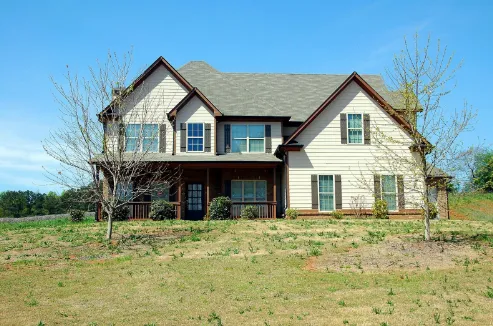Managing a single-family home is a profitable business but like any other venture, staying successful requires facing challenges. As a property manager or owner, you must use a strategic approach to succeed in the real estate business. This includes taking time to plan how you can maintain the property value, attract tenants, and keep everything running smoothly. Managing a single-family home requires unique approaches, knowledge, and patience.
Before discussing the tips for managing your single-family property effectively, you must first understand the key factors that make a rental property a single-family home.
What Is a Single-Family Rental Property?
A single-family rental property is a standalone residential property rented out to a tenant. Unlike condos and apartments, which would be called multi-family rentals, a single-family rental is usually a single house with its own yard, garage, and private entry.
The defining characteristics of a single-family residential property are:
- Standalone Structure – a single-family home is a standalone structure, typically a house with its own yard and private entrance.
- Privacy – unlike multifamily rentals, a single-family home does not have a shared yard and shared entrance to the building.
- Residential Neighborhood – SFRs are often located in neighborhoods or communities primarily made up of similar single-family homes.
- Longer Rental Terms – Single-family homes are usually rented out for longer to the same tenants. Mostly, families and individuals who rent single-family homes sign long-term leases.
7 Tips For Managing Your Single-Family Rental Property
Understanding local laws and regulations, setting competitive rent prices, screening the tenants carefully, and maintaining regular communication are only some of the main aspects of leading a successful single-family property management business.
- Understanding local laws and regulations
Property laws and regulations vary for different types of real estate. As a single-home rental manager, you must familiarize yourself with local laws and regulations of single-family homes. This includes understanding regulations regarding security deposits, eviction processes, and property maintenance requirements.
Don’t forget to make sure the property meets safety and habitation standards. Local ordinances may have requirements for smoke detectors, carbon monoxide detectors, and other safety features. Meeting the requirements ensures you keep the residents of your single-home property safe and minimize your liability.
- Screen Tenants Carefully
As a real estate owner, you can not let anyone start living on your property without going through thorough check-ups first. You must make sure the tenants you choose to sign a lease with are trustworthy and careful. Negligent tenants may pay rent late, miss payments entirely, damage your property or create conflict with neighbors.
Make sure the potential tenants have a stable income and a reliable credit history, and conduct background checks to identify any red flags, such as criminal records or troubles with previous landlords.
- Set Competitive Rent Prices
Setting a rent price is a challenging endeavor, you don’t want to scare away potential tenants with unreasonably high rent prices, but you also don’t want to minimize profit by being too careful. Therefore, conduct thorough market research, check rent prices for local properties, assess the worth of the location, amenities, property size, and other trivial details, and then set a competitive rent price according to your research.
- Maintain Regular Communication
Communication is key to keeping a successful business. Regular, open communication not only helps you address issues promptly but also fosters trust and reliability, encouraging tenants to stay longer and care for the property as if it were their own.
You can keep a positive, professional relationship with your tenants by being accessible – let your tenants know how to reach you. Schedule regular check-ins, but make sure not to disturb your residents’ privacy. Make sure to communicate policies and changes clearly to avoid confusion and conflict by creating misunderstandings.
- Implement a Maintenance Plan
Upkeeping property maintenance is the landlord’s financial responsibility. A well-thought-out maintenance plan is crucial for keeping your single-family rental property in top condition, protecting its value, and providing a comfortable living environment for your tenants.
You can make sure the property is in good condition by conducting regular property inspections, keeping up with appliance servicing, and building a network of reliable vendors. It is important to know who to call when a maintenance issue presents itself.
- Utilize Technology
Leveraging technology can significantly streamline property management tasks, making it easier to stay organized, respond promptly to tenant needs, and keep your rental running smoothly. From tenant communications to rent collection, using the right tools can enhance efficiency and improve tenant satisfaction.
- Stay Organized with Finances
Financing is the most important part of keeping a profitable business. Make sure that you stay organized with finances by keeping track of rent payments, keeping a separate account for expenses such as maintenance and taxes, and simplifying your bookkeeping to make things easier for yourself.
Conclusion
Effectively managing a single-family rental property requires diligence, organization, and communication. By implementing these tips, you can create a positive experience for both you and your tenants, leading to a successful rental business. Whether you’re a new landlord or have been in the game for years, ongoing education and adaptation are key to thriving in the rental market.
